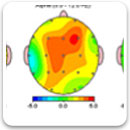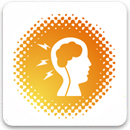Dyslexia
 Individuals with dyslexia often have difficulty relating to language processing such as difficulty identifying or generating rhyming words, learning new words/ alphabet, poor spelling, reversals of letter (b or d) or words (saw vs was) and others.
Individuals with dyslexia often have difficulty relating to language processing such as difficulty identifying or generating rhyming words, learning new words/ alphabet, poor spelling, reversals of letter (b or d) or words (saw vs was) and others.
The World Federation of Neurology defined dyslexia as follows:
Specific developmental dyslexia is a disorder manifested by difficulty learning to read despite conventional instruction, adequate intelligence, and adequate sociocultural opportunity. It is dependent upon fundamental cognitive disabilities that are frequently of constitutional origin.
Treatments
 |
QEEG Brain MappingA Spectrum, we routinely conduct a QEEG brain mapping for Dyslexia. For people with Dyslexia, we found that a specific part of the brain, known as the Wernicke’s area is either inactive or shuts down during reading. We also found that other areas of the brain associated with language can also be inactive or shut down, leading to symptoms of dyslexia. QEEG brain mapping provides important information about how one is utilizing his/her brain while on a language task. With this information, we can design a tailored brain exercise program for the individual. |
 |
Brain Exercise using NeurofeedbackWe can exercise the specific parts of the brain associate with reading and language. The brain exercise enables one to learn to regulate neural activities at specific parts of the brain such as the Wernicke’s area. This skill allows one to activate these areas involved in reading at will. This leads to:
|
 |
BiochemistryExposure to pollution and nutritional imbalance can affect brain function, learning and behaviour. Research is now beginning to recognize these factors. The following nutritional profile has found to have correlation with dyslexia and/or learning difficulties:
|

